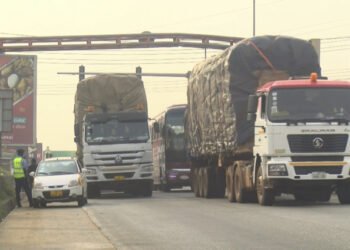The government’s announcement to secure 200,000 hectares of land for cocoa cultivation as part of a broader effort to restore production to one million metric tonnes has reignited debate over the underlying health of Ghana’s cocoa sector.
The Finance Minister’s pledge aims to reverse declining yields and reclaim Ghana’s position in the global cocoa economy. However, policy experts and analysts at IMANI Africa believe that without structural reforms, this expansion could end up repeating past inefficiencies on a larger scale.
“Expanding farmland is only a superficial response. Without tackling systemic disincentives, we risk producing more cocoa under the same broken model”
IMANI Africa
Ghana’s cocoa industry has suffered a steady decline due to ageing farms, widespread incidence of the Cocoa Swollen Shoot Virus, encroachment by illegal mining (galamsey), and the intensifying effects of climate change.
The Ministry’s plan to expand land for cultivation appears to be a direct solution to waning output. But IMANI warned that this focus on land acquisition overlooks the deeper constraints threatening the sector’s long-term viability.
Among the most urgent issues is the ageing demographic of cocoa farmers. According to recent IMANI data, 74% of Ghana’s cocoa farmers are over the age of 45.
Specifically, 37% fall within the 45–54 range, 25% are aged 55–64, and 12% are older than 65. Only 4% of farmers are under 35, highlighting the sector’s inability to attract younger generations.

“Young people are simply not interested in cocoa farming when it’s physically taxing, low-paying, and offers little stability”
IMANI Africa
Younger Ghanaians are instead lured by urban job opportunities, education, or illegal small-scale mining. Cocoa farming is seen as labour-intensive with high input costs and diminishing returns, especially for smallholder farmers who produce an average of 457kg per hectare.
At such yields, most cannot earn a daily income considered decent by international living standards. “When farmers can’t break even, no amount of land expansion will improve livelihoods,” Cudjoe added.
Other Crises
Beyond ageing farmers, price-related disincentives also plague the sector. Ghana’s fixed producer price for cocoa is often lower than prices offered across the border in Côte d’Ivoire or on the black market.
This has created an incentive for smuggling, a phenomenon that could worsen with higher volumes if pricing reforms are not prioritised.
“Unless Ghana’s cocoa price becomes regionally competitive, expanded production may just increase leakage and loss”
IMANI Africa
Another looming threat is illegal mining. Galamsey operations continue to encroach upon cocoa-growing communities, degrading land and water resources.
Without stronger enforcement of land rights and protection of new cultivation areas, the government’s planned 200,000 hectares may be vulnerable to the same fate as previously affected zones.

Reform First, Expand Later
To address these core issues, IMANI recommended three urgent interventions to rebuild a resilient cocoa sector before any expansion is undertaken.
First, the think tank urged the government to scale up agroforestry-based cocoa systems. Cocoa traditionally thrives under tree cover, but deforestation and unsustainable practices have eroded this ecological balance.
IMANI suggested reviving initiatives like the Cocoa and Forest Initiative and aligning national implementation plans to promote climate-smart farming techniques. “Farmers need consistent education and access to shaded trees to transition to climate-resilient models,” the report noted.
Additionally, there was a call to expand the Cocoa Pest and Disease Control (CODAPEC) and Cocoa Rehabilitation and Intensification Programmes (CRIP). These initiatives provide subsidised inputs and mass spraying services.
Strengthening them will reduce costs, improve tree health, and raise productivity levels, especially among ageing farms.
IMANI also highlighted the need for enhanced farmer training and extension services. Many cocoa farmers lack access to up-to-date agronomic knowledge on soil management, pest control, and sustainable input use.
Government agencies like COCOBOD must bridge this gap to ensure that any gains from increased cultivation are both productive and sustainable. “No strategy will succeed without an informed and empowered farmer base.”
As the Mahama-led administration pushes forward with its agricultural expansion goals, the cocoa sector’s revival may depend less on the size of land secured and more on the strength of reforms enacted.
READ MORE: UK Travellers To Use EU E-Gates



















